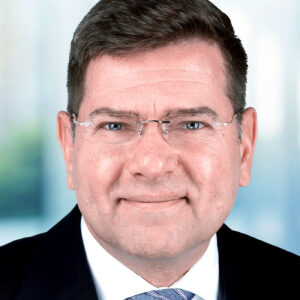
What’s the secret to success for CFOs? Seasoned expert Michael Perica, EVP & CFO of Rimini Street, sums it up with three takeaways—timing, technology and teamwork.
I was fortunate to speak with Jack Sweeney recently on his CFO Thought Leader podcast about some lucky breaks I got early in my career, my move from Wall Street to industry, and my current role as EVP and Chief Financial Officer at Rimini Street. Jack’s podcast is one of the best for hearing straight from CFOs about their challenges, successes, and how they have overcome adversity throughout their career. While I would be humbled to have you listen in on the recorded session, here are three key takeaways I hope you will find interesting
Timing: Lifelong lessons, direct from the C-suite
After graduating from Central Michigan University with an undergraduate accounting degree in 1994, I found an opportunity that aligned closely with my interests with a national capital markets firm that was hiring research analysts. Within a year of landing the role, I was working side by side with the founder of the firm, an eccentric billionaire.
One day, he took me aside and told me that he was about to give me the opportunity of a lifetime. Fresh out of college and full of energy, I was about to gain access to CEOs and CFOs at some of the largest companies in the US. The founder urged me not to bury my nose in my research but to interact with and learn from some of the brightest minds in business. He didn’t need to do much urging; I went all in on this amazing learning opportunity.
Taking his advice, I began to cultivate relationships with these high-profile leaders, one of whom later became my bridge from Wall Street to industry. I was presented with a chance early in my career to interact with the C-suite and boardrooms, an opportunity that many who work for decades in finance never get. I gained insights to the inner workings of how c-level executives take on complex business challenges. I closely observed how dynamic leadership serves to motivate teams to ensure success. And I learned what sets apart executives who achieve results from those who fall short.
Timing, in life and in business, is everything. And when I found this break, I took full advantage of it. I observed. I listened. And I learned an immense amount of information that I use in my work to this day. While stories like this aren’t common, never turn down opportunities to learn.
Technology: The nexus for CIO and CFO collaboration
While serving as the treasurer and completing my MBA, I leaned into the knowledge I’d learned in my 12 years of investing while building relationships and gaining knowledge from scores of C-level executives. I then became the CFO and held that title for a four-year period, launching my career into the C-suite.
Through this experience during the last 16 years, I’ve gained firsthand knowledge of the challenges enterprises face with their ERP systems. A cornerstone of that knowledge is an understanding of how technology impacts the CFO as much as the CIO. Technology is not only an enabler and accelerator, but also a huge investment that—to be successful—mandates collaboration between the CIO and CFO.
Case in point: I’ve worked with an extensive SAP ECC 6 system as well as a large, standardized Oracle system. I’ve been forced into take-it-or-leave-it contracts and upgrades. I’ve had the frustration of feeling like my hands were tied and I couldn’t negotiate with the vendor of these applications that were so vital to my business.
This understanding is part of the reason I am so excited to work with the team at Rimini Street. Our company’s deep expertise across ERP systems allows us to provide world-class support, and our strategic thinkers are deeply vested in the success of our clients. Rather than pushing you into an upgrade or subscription-based solution, our experts take a comprehensive look at your current environment to see how it can be extended or adapted to continue to meet your needs while increasing the ROI of your investment.
This mind shift reflects an adaptive technology strategy which Gartner calls “composable ERP,” or, as we like to call it, “innovating around the edges,” and it occurs when an organization begins focusing on business outcomes rather than underpinning technologies. And when upgrading makes sense, our team can help guide you through the process.
I appreciate how difficult it can be to be bound to a vendor-driven solution, and I’m so proud to be in a position to help executives regain control of their strategic, business-driven roadmap.
Teamwork: Nurture top talent for business longevity
After publishing equity research for 12 years, a CEO with whom I had an excellent relationship offered me a job. He told me that he needed a strategic financial thinker, and he offered me a track to become the CFO of the organization. I would start as a treasurer while working on my MBA.
This offer came when I was a Director of Research for the capital firm and was mentoring younger analysts. I enjoyed developing talent and also had an interest in the corporate side of finance. I relished in activating analysts’ strategic decisions, their deployment of capital, and investments in the future. This was far more intriguing to me than looking for the next catalyst for a stock. And my experience as a mentor underscored the importance of talent development. Enhancing the skills, abilities, and potential of employees, through opportunities and guidance is a win-win for employees and businesses alike.
It’s that same spirit of teamwork, coupled with a culture that prioritizes career development, mentorship, and extended education, which helps attract, retain, and develop top talent here at Rimini Street. While the tech talent shortage might be a recent phenomenon, having a team of top talent to help drive client success is nothing new for Rimini Street.
Learn more: Listen to the entire podcast at CFO Thought Leader now.
